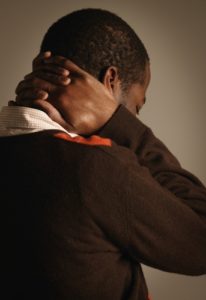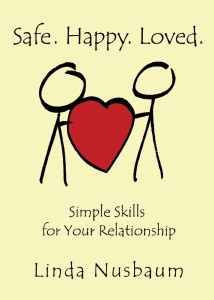So, why do we hurt the ones we love?
Every one of us has hurt someone we care about. Unless we live alone in a cave and don’t interact with another human being, we will sometime in our life be hurting someone we love. It just goes along with being alive and interacting with others.
We Feel Awful When We Hurt The Ones We Love

But when we hurt the person we love and are in relationship with—well, that can weigh heavy on us and make us feel pretty terrible. I know there have been many times I have been cross or said something sharp to my husband. I also know that even the slightest shrug of the shoulder or snappy reply has an effect on him.
So if we do things that are bigger than a rolling of the eyes, like hanging up on our partner, cussing them out, or slamming doors and leaving, well we have made not just a statement, we have made a big impact on the person we love.
So, Why Do We Hurt the Ones We Love?
I know why people do these things to the people they love. We do it because we have been hurt. We react because we have felt pain. We lash out because it is our habit and, in a weird way, we feel a little bit better when we do. The problem, though, is that when we respond in anger, our partner feels the bite and then they feel bad.
And when we realize what we did to them then we probably feel terrible about ourselves with feelings of guilt or shame. This causes even more problems, because we feel so awful about ourselves, wondering how we could have done that to them. So if you are one that lashes out, here are a few things you should know.
Things You Should Know, Having Hurt the One You Love

First off: you are not alone. There are probably many people like us in the world whose first response is to let someone know our feelings were hurt and do it in a big way. I bet there are probably millions of people like us. So again, we are not alone.
That eases the discomfort a little, but it still doesn’t take away the feelings of doing our partner wrong and then feeling bad about it. So here’s what I recommend. Work on it. Try and minimize how you respond when you are upset. Notice what you do now and figure out if you can do something different. I used to be a yeller and a door slammer. Now I just say snarky things without more. So try and change what it is you do.
Secondly: it doesn’t matter how long you have been in the same pattern, that’s all it is, it’s a pattern. You can change the pattern and create new habits just like you have done many, many other times in your life with other patterns or habits you wanted to get rid of or modify.
Thirdly: let your partner know that you are aware of what you did. This lets them know you are thinking about them. I always own up to my bad behavior. You know why? Because my husband is a nice person and doesn’t deserve to be treated the way I treated him. The more I think about his feelings and how my actions impact him, the easier it is for me to get out of my old habits.
And finally, please be gentle to yourself. You are just trying to get your needs met. You are not trying to hurt anyone. Ask your partner to be patient as you learn this new skill. And you remember this too: you deserve to feel like a work in progress, not a failure.
Hurt the One You Love Less Often
Read a Book About Relationships
Develop a better understanding of upset and lashing out in relationships, by reading Linda’s book, Safe. Happy. Loved. Simple Skills for Your Relationship. It just might help you and your loved one communicate better, helping you fight less, better understand one another, and even help you feel closer and more loved. Give it a read.
Get Couples Counseling
Come in for couples counseling. Couples counseling can help you and your loved one get the most out of your relationship. It'll equip you with coping strategies and tools for communication that can help you argue less and love more.


